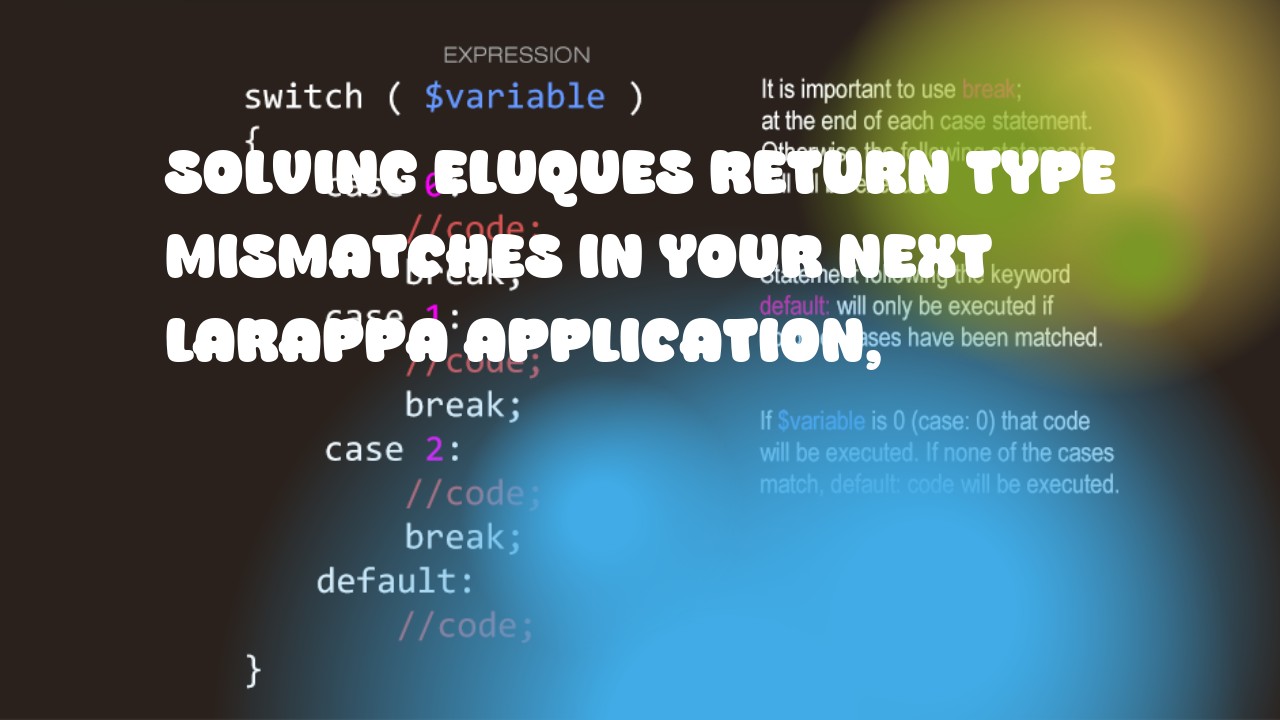Solving elucidate return type mismatches in your Next.js application can involve multiple strategies depending on the exact issue you are facing and its origin. Here's a general guide to help you identify potential issues and fix them:
- Check Your API Calls: Ensure that your API calls are returning the expected data types. If they are not, this could be causing a mismatch in return type. You can use TypeScript or other statically typed languages to enforce data types at compile time.
- Use PropTypes: Next.js allows you to add prop types to your components using the PropTypes library. This can help catch issues where props are passed to your components with the wrong data type.
Code example for propTypes in Next.js:
import React from 'react';
import PropTypes from 'prop-types';
class MyComponent extends React.Component {
render() {
return <div>{this.props.myData}</div>;
}
}
MyComponent.propTypes = {
myData: PropTypes.string,
};
- Use TypeScript: If you're developing a large application, using TypeScript can help catch issues earlier in the development process. TypeScript adds static typing to JavaScript, which can help catch mismatches in return types.
Code example for type checking with TypeScript:
import React from 'react';
interface MyComponentProps {
myData: string;
}
const MyComponent: React.FC<MyComponentProps> = ({ myData }) => {
return <div>{MyData}</div>;
};
export default MyComponent;
- Validate the API Response: If you're fetching data from an external API, make sure that you're properly validating the response and handling potential errors. This can help prevent issues where the return type of your API call is not as expected.
Code example for error handling with Axios in Next.js:
import axios from 'axios';
export async function getMyData() {
try {
const response = await axios.get('https://api.example.com/my-data');
if (response.status === 200) {
return response.data;
} else {
throw new Error('Failed to fetch data');
}
} catch (error) {
console.error(error);
}
}
Remember that solving elucidate return type mismatches in your Next.js application requires a combination of identifying the issue, fixing it, and testing your changes to ensure they work as expected.

